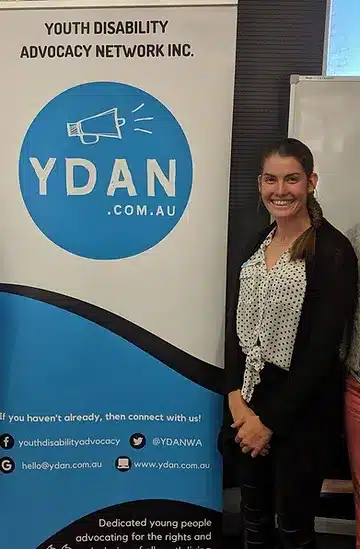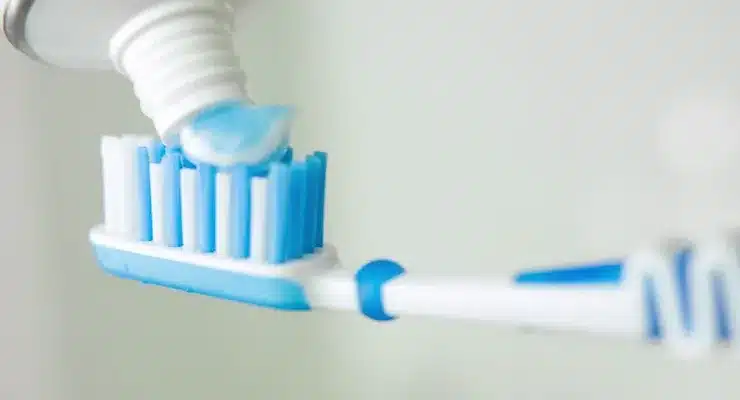Being a young person with a disability has its ups and downs. When I was younger, I always knew that I was different. What I didn’t realise was the way the outside world would perceive me, the impact this would have on my life, and the many mental obstacles I would need to overcome.
My name is Madi, I’m a Year 12 student and I have a disability called Ataxic Cerebral Palsy. Now that I have reached the end of high school I am reflective of the rollercoaster ride of obstacles that I have faced – both physical and mental.
Strangely enough the biggest obstacle that I have faced is accepting my difference – owning it and being proud of who I am, no matter what other people may think, believe or say. In all honesty, I still struggle with this a lot and every day is a constant battle for me.
Being surrounded by students that can complete physical tasks quicker than you, not being included in high school social gatherings such as birthdays and lunches, not being as involved in class discussions with peers as much as you would like to be and being accompanied by an Education Assistant or Carer – these can all make my peers see me as being incapable. Facing these challenges everyday can be tough and emotionally draining.
What a lot of people won’t know is that every physical movement I do requires a lot of energy and it takes my brain a long time to send signals to the actual muscles that I am trying move, even getting ready in the morning has huge challenges. An example of this is something as simple as brushing my teeth, firstly I need to get the toothpaste on the bush and due to my hands shaking the toothpaste will usually end up on the floor. While brushing my teeth I have to really concentrate on keeping my hands steady so they will move in the way I want them to, otherwise this may result in me stabbing myself in the mouth with the toothbrush. I have many everyday tasks that are not even thought about by people without disability, and could probably write a book on the basic tasks of getting dressed, having a shower and eating alone.
if I’m constantly worried about my differences and fitting in, then how do other people, particularly young people with disability, think and feel about this topic?
Anyone with a disability will likely relate to these kind of seemingly simple struggles. I remember a couple of years ago, when I was in Year 10, I was going through what I call my ‘rainy day’. I was finding it really hard to fit in and felt uncomfortable being in my own skin. It was during this time, I was thinking about the many obstacles that I have faced and overcome and that other people with disabilities would also go through and how they overcome their challenges. It really got me thinking; if I’m constantly worried about my differences and fitting in, then how do other people, particularly young people with disability, think and feel about this topic? And most importantly, how do they overcome this?

For the last 3 years, I have been giving talks in front of various groups of people, from school kids, teachers to private companies and organisations about what it’s like to live with a disability and what I believe real inclusion looks and feels like, based on my own experiences. I feel that my message is very important, both in what I am saying but also the fact that they are hearing it from a young person with a disability directly.
In doing these speeches, my hope is to break down the “awkward barriers” that usually surround the topic of disability. I want to help people engage in new conversations and ask the tough questions, all in a safe environment. I realise that we can’t change everyone’s opinion and attitudes, but if I can make a difference to how someone thinks about people with disabilities and how they perceive the disability community, and in turn how they then go on to interact with people with disabilities, then that’s what it’s all about for me.
People often ask me: how do I stay so positive, and how have I got such a bright outlook on life? I often respond short and easy: “I have learnt to look forward to the things I enjoy doing the most and not focus on the negative”. This isn’t always that easy, but I surround myself with great supports at school and family, which enables me to unload and share the day to day stresses of life. Most importantly is my network, my friends at school, many of who have disabilities and face the same kind of challenges that I do on a day to day.
“Life not about waiting for the storm to pass, it’s about learning to dance in the rain.”
To me, the meaning behind these words makes me feel so empowered to be the best version of myself that I can be and try to inspire others to do the same. The deeper meaning behind it all is that life deals you challenges, curveballs and rough patches all the time, it’s how you choose to tackle those obstacles and challenges that can be the real game changer.
Don’t get me wrong – you’re going to be faced with many challenges throughout your life and you may choose the wrong path on occasion, as I have many times before, but the greatest part about falling down is that you can learn from your mistakes. It’s similar to the game of snakes and ladders; once you’ve fallen, there’s only one way to go and that is up! In saying this it is extremely important to get back up once you have fallen or slid down a snake because you never know when another ladder is around the corner.

